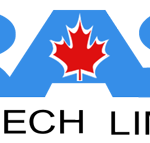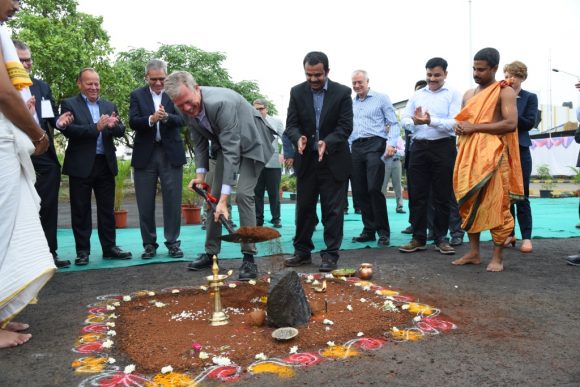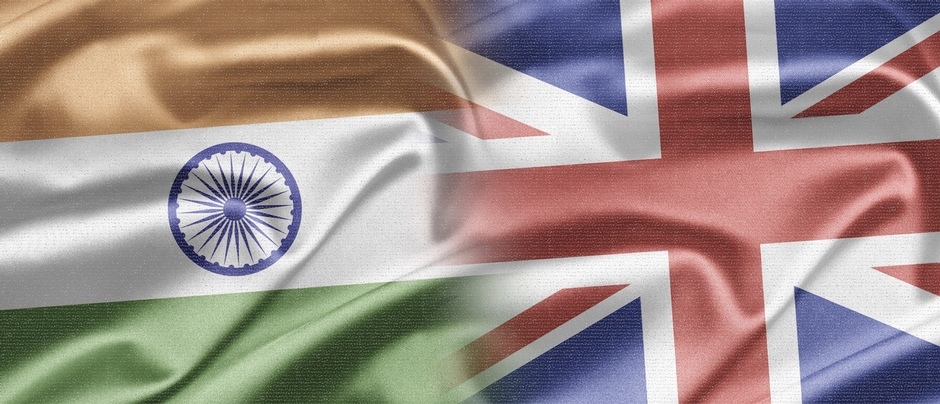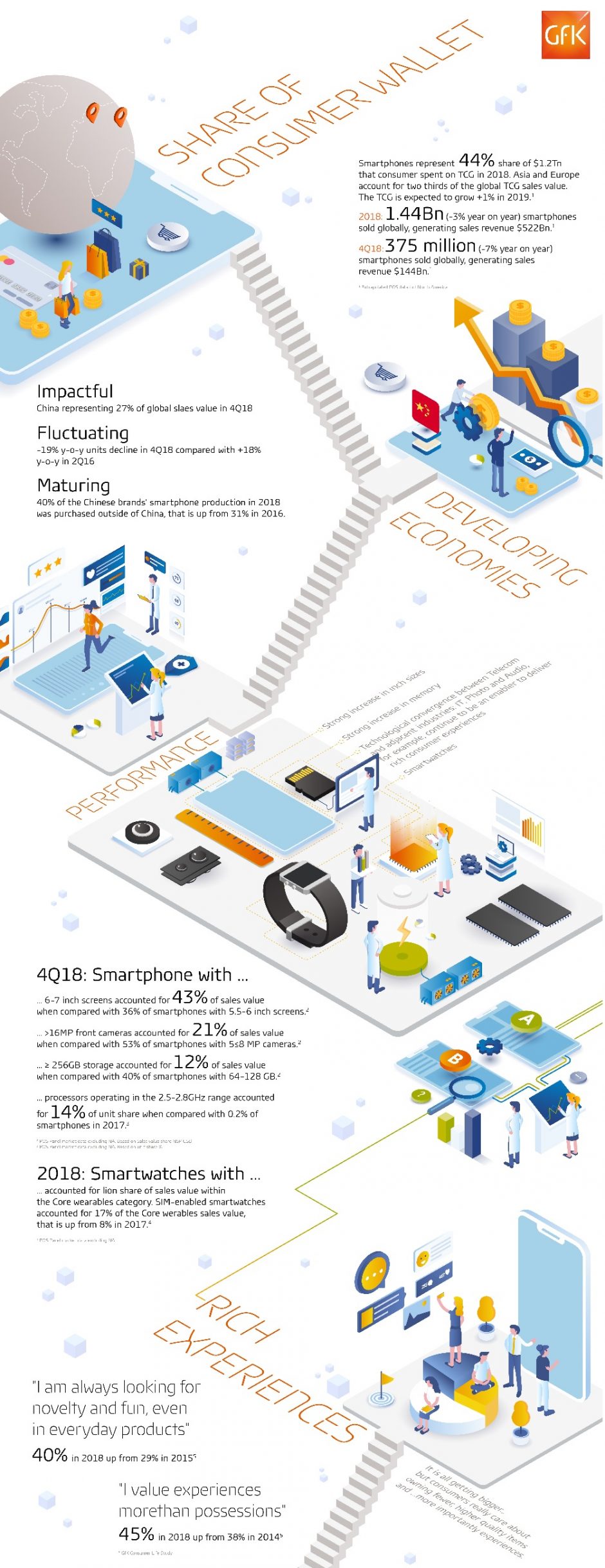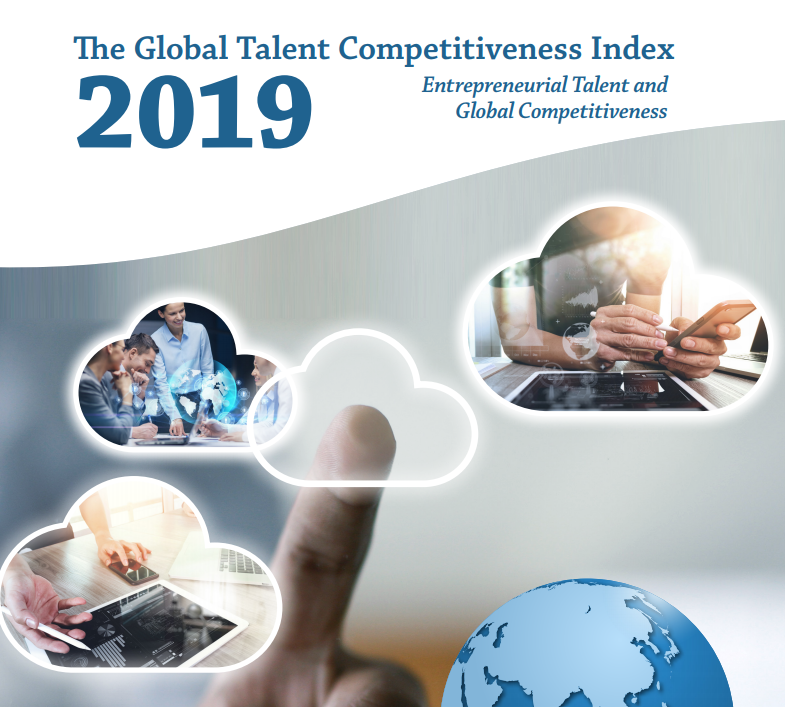LONDON/ ROTTERDAM, 04-Dec-2018 — /EuropaWire/ — Unilever today announced it has signed an agreement to acquire the Health Food Drinks portfolio (GSK HFD) of GlaxoSmithKline (GSK) in India, Bangladesh and 20 other predominantly Asian markets.
The transaction consists of three elements:
- all-Equity Merger of Hindustan Unilever Ltd (HUL) with the publicly listed GSK Consumer Healthcare India (GSK CH India),
- acquisition of 82% stake in GSK Bangladesh Limited (GSK Bangladesh), and
- acquisition of certain other commercial operations and assets outside India.
Unilever’s share of the total consideration is €3.3bn payable using a combination of cash, and shares in its listed subsidiary in India, Hindustan Unilever Limited.
In 2018, the GSK HFD portfolio delivered total turnover of c.€550m, primarily through the Horlicks and Boost brands. Almost 90% of the turnover is in India.
The transaction is aligned with Unilever’s stated strategy of increasing its presence in health-food categories and in high-growth emerging markets.
GSK HFD is the undisputed leader in the Health Food Drinks category in India, with iconic brands such as Horlicks and Boost, and a product portfolio supported by strong nutritional claims. This portfolio has a long history in India with Horlicks having originally been introduced in the 1930s. Horlicks products have been an everyday staple in South Asian households across generations. Over the last 15 years, the portfolio (and category) has grown at a double-digit rate. Despite this, the category still remains under-penetrated in India. Unilever is well positioned to further develop the market given the extent of its reach and capabilities.
Nitin Paranjpe, President, Food & Refreshment, Unilever, said: “We are delighted to be acquiring the GSK Health Food Drinks portfolio. The iconic Horlicks brand has a deep heritage, credibility and resonance around the world. The acquisition is transformative for our Foods and Refreshment business allowing us to enter the Health Foods Drinks category, further strengthening our position in health and wellness. It is rare to be able to acquire brands with such leading market positions and fantastic consumer equity in one of the world’s most exciting and fast-growing markets. Improving the health and wellbeing of 1 billion people by 2020 is a key pillar in our Unilever Sustainable Living Plan. Horlicks and Boost will add to our stable of purpose driven brands that help consumers to get more out of their lives.”
Sanjiv Mehta, Chairman and CEO, Hindustan Unilever said: “With this strategic merger of Hindustan Unilever and GSK Consumer Healthcare India Limited, we will be expanding our portfolio through great brands into a new category catering to the nutritional needs of our consumers. I am confident that this merger will create significant shareholder value through both revenue and cost synergies. The turnover of our Foods & Refreshments business will now exceed Rs. 100bn and we will become one of the largest F&R businesses in the country. We look forward to welcoming new brands and great talent into the Unilever and HUL family, once the transaction is complete.”
Transaction and Financial Considerations
As outlined above, the transaction consists of three elements:
1. All-Equity Merger of HUL with the publicly listed GSK CH India
The merger of HUL with GSK CH India will be on the basis of an exchange ratio of 4.39 HUL shares for each GSK CH India Share.
This implies a total equity value of INR 317bn (c.€3.96bn) for 100% of GSK CH India and represents a premium of c.5%, based on the 15-day VWAP of both the respective shares ending 30th November 2018. Following the issue of new HUL shares, Unilever‘s holding in HUL will be diluted from 67.2% to 61.9%.
The merger includes the totality of operations within GSK CH India, including a consignment selling contract to distribute GSK’s Over-the-Counter and Oral Health products in India.
2. Acquisition of 82% stake in GSK Bangladesh
Unilever will acquire, for cash, 82% of the shares of the publicly listed GSK Bangladesh Limited at an equity value of BDT 16bn (c.€169m), implying an EV/EBITDA multiple of c.15x.
3. Acquisition of certain other commercial operations and assets outside India
Unilever will also acquire the commercial operations in 20 other predominantly Asian markets and the intellectual property rights for a total consideration of c.€470m in cash.
The total consideration for the transaction is c.€4.6bn, of which Unilever‘s implied contribution through both cash and through the issue of shares in HUL, its listed subsidiary in India, totals c.€3.3bn.Unilever expects to achieve substantial synergies. Cost synergies are expected from a combination of supply chain efficiencies and operational improvements, go-to-market and distribution network optimisation, the benefits of scale in a number of cost areas such as marketing, and streamlining of overlapping infrastructure. The revenue growth of the HFD portfolio is expected to accelerate through leveraging Unilever’s vast local distribution and selling capabilities, particularly in India.
Post synergies, the implied EV/EBITDA multiple for the transaction would be below 20x.
By utilising HUL equity to fund the Indian component of the transaction, together with the synergies outlined above, Unilever shareholders are expected to benefit from returns well in excess of the cost of capital from Year 4. In addition, the Transaction will be EPS accretive, on an underlying basis, immediately post completion.
The Transaction is subject to customary regulatory and shareholder approvals, with expected completion in c.12 months.
Sources of information and basis of calculation
The agreed share exchange ratio in the merger of GSK CH India and HUL is 4.39 HUL shares for every 1 GSK CH India share.
The 15-day VWAP on the NSE for HUL of INR 1,717.45 and GSK CH India of INR 7,196.71 ending 30th November 2018.
The following exchange rates have been used in the above calculations: €1 = INR 80.00 and €1 = BDT 97.27.
Unilever PLC
Unilever House
100 Victoria Embankment
London EC4Y 0DY
United Kingdom
+44 (0) 207 822 5252
Press-Office.London@Unilever.com
Unilever NV
Weena 455
3013AL Rotterdam
www.unilever.nl
+31 (0) 10 217 4000
mediarelations.rotterdam@Unilever.com
Hindustan Unilever, Mumbai:
0091 2239 832 429
Prasad.Pradhan@unilever.com
Unilever, London:
07824 089 836
Frida.Critien@unilever.com
SAFE HARBOUR
Where relevant, these actions are subject to the appropriate consultations and approvals.
This announcement may contain forward-looking statements, including ‘forward-looking statements’ within the meaning of the United States Private Securities Litigation Reform Act of 1995. Words such as ‘will’, ‘aim’, ‘expects’, ‘anticipates’, ‘intends’, ‘looks’, ‘believes’, ‘vision’, or the negative of these terms and other similar expressions of future performance or results, and their negatives, are intended to identify such forward-looking statements. These forward-looking statements are based upon current expectations and assumptions regarding anticipated developments and other factors affecting the Unilever Group (the ‘Group’). They are not historical facts, nor are they guarantees of future performance.
Because these forward-looking statements involve risks and uncertainties, there are important factors that could cause actual results to differ materially from those expressed or implied by these forward-looking statements. Among other risks and uncertainties, the material or principal factors which could cause actual results to differ materially are: Unilever’s global brands not meeting consumer preferences; Unilever’s ability to innovate and remain competitive; Unilever’s investment choices in its portfolio management; inability to find sustainable solutions to support long-term growth; the effect of climate change on Unilever’s business; customer relationships; the recruitment and retention of talented employees; disruptions in our supply chain; the cost of raw materials and commodities; the production of safe and high quality products; secure and reliable IT infrastructure; successful execution of acquisitions, divestitures and business transformation projects; economic and political risks and natural disasters; financial risks; failure to meet high and ethical standards; and managing regulatory, tax and legal matters. These forward-looking statements speak only as of the date of this announcement. Except as required by any applicable law or regulation, the Group expressly disclaims any obligation or undertaking to release publicly any updates or revisions to any forward-looking statements contained herein to reflect any change in the Group’s expectations with regard thereto or any change in events, conditions or circumstances on which any such statement is based. Further details of potential risks and uncertainties affecting the Group are described in the Group’s filings with the London Stock Exchange, Euronext Amsterdam and the US Securities and Exchange Commission, including in the Annual Report on Form 20-F 2017 and the Unilever Annual Report and Accounts 2017.
SOURCE: Unilever
 Online solution to its customers. Entering the demanding Middle East markets marks a market breakthrough for Piceasoft technology and proves company strategic direction,” said Risto Kivipuro, Piceasoft Chairman
Online solution to its customers. Entering the demanding Middle East markets marks a market breakthrough for Piceasoft technology and proves company strategic direction,” said Risto Kivipuro, Piceasoft Chairman Online is cost-efficient and unique technology that is not offered by anyone else in the market,” said Mohamed Akram Khazi, RAS Infotech Limited, CEO-MENA
Online is cost-efficient and unique technology that is not offered by anyone else in the market,” said Mohamed Akram Khazi, RAS Infotech Limited, CEO-MENA Online and other Piceasoft products please contact:
Online and other Piceasoft products please contact: allows transferring all personal data from old to new phone as well as backup/restore; with PiceaDiagnosticsImage may be NSFW.
allows transferring all personal data from old to new phone as well as backup/restore; with PiceaDiagnosticsImage may be NSFW. service centers and repair shops can save money by finding No-Fault-Found (NFF) causes on the spot as well as estimate the value of phone for recycling; PiceaEraserImage may be NSFW.
service centers and repair shops can save money by finding No-Fault-Found (NFF) causes on the spot as well as estimate the value of phone for recycling; PiceaEraserImage may be NSFW. is a software product that enables safe disposal, reuse or resale of mobile devices by permanently erasing all the sensitive user and system data; PiceaVerifyImage may be NSFW.
is a software product that enables safe disposal, reuse or resale of mobile devices by permanently erasing all the sensitive user and system data; PiceaVerifyImage may be NSFW. checks that the device is acceptable for resale/service: Are Anti-Theft locks (de)activated; Is phone stolen; Are SIM card and Memory Card inserted?
checks that the device is acceptable for resale/service: Are Anti-Theft locks (de)activated; Is phone stolen; Are SIM card and Memory Card inserted?
